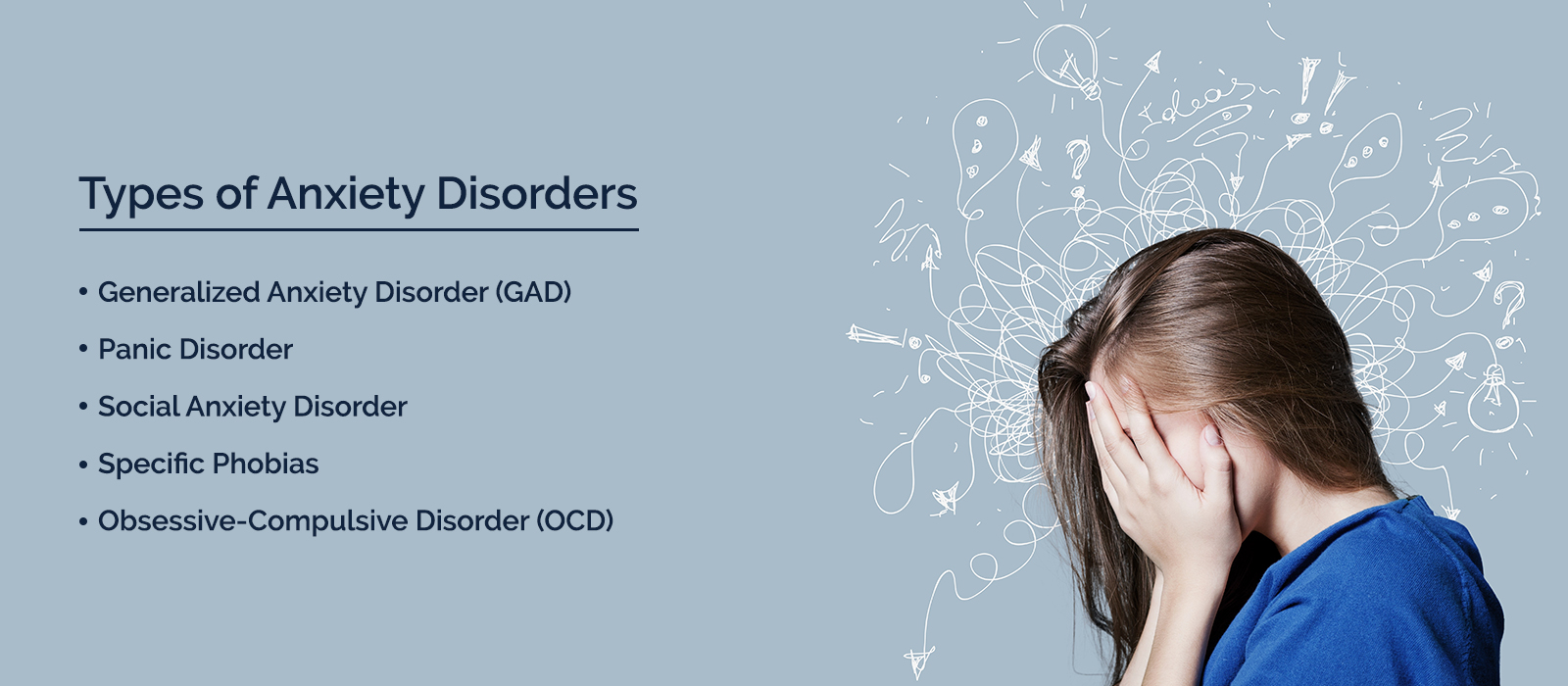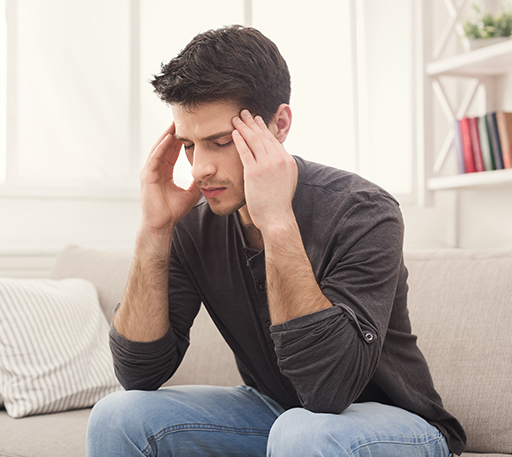Many people experience anxiety in different forms, and recognizing the signs can be the first step toward managing it effectively. You might find yourself feeling overwhelmed, restless, or easily fatigued.
Understanding the subtle indicators that you may be struggling with anxiety can empower you to seek the help you need. In this post, we’ll explore five common signs of stress and anxiety that you should be aware of, helping you take proactive steps for your mental health and well-being.
To fully comprehend anxiety, it is imperative to explore its definition, types, and prevalence within society. Anxiety can manifest in various ways, influencing your daily life, relationships, and overall well being. By understanding what anxiety is and its different forms, you can take proactive steps towards managing it effectively.
What is Anxiety?
On a fundamental level, anxiety is a natural response to stress mixed with feelings of worry, fear, and apprehension. It can be a regular part of your life, helping you navigate challenging situations; however, when these feelings become overwhelming or chronic, they may indicate an anxiety disorder.
Types of Anxiety Disorders

Types of anxiety disorders encompass several variations, each with unique symptoms and triggers. These disorders can impact your daily life, making it crucial to recognize their signs.
Here are the major types of anxiety disorders:
- Generalized Anxiety Disorder (GAD) – Excessive, uncontrollable worry about various aspects of life.
- Panic Disorder – Recurrent, unexpected panic attacks and fear of future attacks.
- Social Anxiety Disorder – Intense fear of social interactions and scrutiny from others.
- Specific Phobias – Irrational fear of specific objects or situations.
- Obsessive-Compulsive Disorder (OCD) – Intrusive thoughts (obsessions) leading to repetitive behaviors (compulsions).
Perceiving the nuances of each type can empower you to seek appropriate support and treatment.
Another critical aspect of anxiety is acknowledging its prevalence in society. Anxiety disorders are among the common mental health issues faced today, affecting millions globally. Understanding how frequently these disorders occur underscores the importance of addressing your mental health. Seek help whenever you feel overwhelmed.
Another critical aspect of anxiety is acknowledging its prevalence in society. Anxiety disorders are among the common mental health issues faced today, affecting millions globally. Understanding how frequently these disorders occur underscores the importance of addressing your mental health. Seek help whenever you feel overwhelmed.
Prevalence of Anxiety in Society
Types of anxiety disorders affect a significant percentage of the population, with studies indicating that nearly 30% of adults experience anxiety disorders at some point in their lives. Being aware of this prevalence can normalize your experiences and encourage you to seek assistance when needed.
Society is becoming increasingly aware of the significance of mental health, which has led to a rise in discussions surrounding anxiety. Increased awareness fosters understanding, reducing stigma and making it easier for you to seek help. Recall that you’re not alone in your journey toward mental wellness.
Signs of Anxiety
Some signs of anxiety can manifest in various ways, affecting your daily life and overall well being. By recognizing these signs, you can better understand your mental health and seek appropriate help when needed. Here, we explore the different ways anxiety can present itself, from physical to emotional and behavioral symptoms.
Physical Symptoms
The physical anxiety symptoms can often feel overwhelming and can include rapid heartbeat, shortness of breath, and muscle tension. You may also experience headaches, stomach problems, or sweating, which can exacerbate your feelings of unease and discomfort.
Emotional Symptoms
Emotional anxiety symptoms can leave you feeling on edge or excessively worried. You may find yourself feeling restless, irritable, or even hopeless at times. Recognizing these emotional indicators can be vital in managing your anxiety effectively.
Tension and worry may seem like constant companions in your life if you are grappling with anxiety. You might frequently replay scenarios in your mind or have racing thoughts, making it difficult to focus or relax. These emotions can impact your quality of life, affecting your relationships and personal well-being.
Behavioral Signs
Sweating, trembling, or fidgeting may indicate that you are experiencing anxiety in social or high-pressure situations. These behavioral signs can manifest as avoidance of certain activities or places, making it challenging for you to engage fully in your life.
Swings in your behavior might include sudden changes in how you interact with others, whether it be withdrawing from social situations or having intense outbursts. These fluctuations can create a cycle of anxiety, reinforcing your fears and making it harder for you to break free from the grip of anxiety.
Cognitive Anxiety Symptoms
Despite the physical manifestations of anxiety, it’s imperative to recognize the cognitive symptoms that can severely impact your daily life. These signs often influence how you think and process information, leading to a cycle of distress that can be challenging to break.
Difficulty Concentrating
Any distraction can make it hard for you to focus on tasks, whether at work, school, or home. You may find your mind wandering or feel overwhelmed, making it challenging to complete even simple activities.
Racing Thoughts
To combat anxiety, you might experience a whirlwind of thoughts that seem uncontrollable and chaotic. This barrage can lead to feelings of being overwhelmed and can prevent you from effectively processing information or making decisions.
Thoughts race through your mind, jumping from one concern to another, often escalating your anxiety levels. You might find yourself obsessively dwelling on past events, worrying about future situations, or imagining worst-case scenarios. The inability to quiet these thoughts can leave you feeling mentally exhausted and unable to find peace.
Fear of Losing Control
Difficulty managing your emotions can translate into a pervasive fear of losing control over your thoughts and actions. This fear often exacerbates anxious feelings, creating a cycle of worry and tension.
Fear of losing control can come in various ways, from avoiding situations where you feel vulnerable to frequently checking your environment for perceived threats. This heightened state of alertness can prevent you from engaging fully in life and lead to increased isolation, as you might avoid social interactions in an effort to maintain control.
Impact of Anxiety on Daily Life
Once again, anxiety can heavily impact your daily life, affecting various aspects that might seem unrelated at first glance.
Relationships
On a personal level, anxiety can strain your relationships with family and friends. You might find yourself withdrawing socially, fearing judgment or misunderstanding, which can lead to isolation and distance from those you care about.
Work Performance
To put it simply, anxiety can disrupt your productivity and focus at work. It may cause you to feel overwhelmed, leading to challenges in completing tasks or meeting deadlines.
Another critical aspect is how anxiety can impair your decision-making skills and creativity. You may find it difficult to contribute in meetings or brainstorm effectively, which can compromise your overall job performance and career growth.
Overall Quality of Life
Performance anxiety can diminish your overall quality of life, as constant worry can sap your energy and enthusiasm for daily activities. This can prevent you from enjoying simple pleasures and experiences.
Life becomes increasingly challenging when anxiety lurks in the background, influencing your mood and outlook. It may lead you to miss out on opportunities for personal growth or enjoyable experiences, thereby diminishing your overall happiness and well-being.
Strategies for Managing Anxiety- How to Reduce Anxiety Immediately?

For many, anxiety can be overwhelming, but several effective strategies can help you regain control. Understanding and implementing these strategies can significantly improve your wellbeing and quality of life.
Professional Help and Therapy
Anxiety can often benefit from professional intervention. Seeking help from a therapist or counselor can provide you with personalized strategies to cope with your feelings. Therapies like Cognitive Behavioral Therapy (CBT) have proven particularly effective, offering tools to challenge negative thinking and develop healthier coping mechanisms.
Supplements to Reduce Stress
You can take some supplements that can help you to relieve stress. Omni-Biotic Stress Release Probiotic is a popular supplement that is specially designed to work on the gut-brain axis and combat stress. Releasing stress can decrease your anxiety.
Lifestyle Changes
Professional guidance can significantly augment your mental health journey. Simple daily adjustments like incorporating regular exercise, maintaining a balanced diet, and prioritizing sleep can reduce anxiety symptoms. You can also chant some prayers for anxiety relief. Being mindful of your habits can set a strong foundation for emotional stability.
Support Systems and Community Resources
To manage anxiety effectively, it’s vital to surround yourself with supportive individuals. This can include friends, family, or support groups that share similar experiences. Building a solid support network allows you to feel understood and less isolated in your struggles.
To enhance your support systems, consider joining community resources such as local anxiety support groups. These groups can help you connect with others who understand what you’re facing. Online communities can also provide a sense of belonging and valuable insights from different perspectives. This inclusive environment fosters open discussions and shared strategies for managing anxiety in a supportive manner.
Mindfulness
Mindfulness techniques can be incredibly beneficial for managing anxiety. Incorporating natural remedies to manage anxiety such as meditation, deep breathing exercises, or yoga into your routine can help ground you in the present moment and reduce feelings of overwhelm. By focusing on your breath and the sensations within your body, you can cultivate a calmer mind and regain control over your anxious thoughts.
When to Seek Help?
All individuals experience anxiety differently, but knowing when to seek help is crucial for your well-being. If your stress is interfering with your daily life, relationships, or responsibilities, consider seeking professional assistance.
Recognizing Severity of Anxiety Symptoms
On occasions, your anxiety may escalate to a level that feels unmanageable. If you notice persistent feelings of worry, panic attacks, or an inability to carry out daily tasks due to anxiety, it may signal the need for professional help. Recognizing the severity of your symptoms can provide clarity on the following steps to take.
Finding the Right Professional
An essential step in managing your anxiety is finding the right mental health professional. Look for a therapist or psychiatrist who specializes in anxiety disorders and has expertise in evidence-based treatments.
Finding the right specialist can make a significant difference in your treatment journey. Consider checking online reviews, requesting recommendations from trusted friends or family, and verifying their credentials. Don’t hesitate to schedule consultations with a few practitioners to discover who you feel most comfortable with, as a solid therapeutic relationship is critical to effective treatment.
Importance of Early Intervention
One of the most vital steps you can take is to seek help as soon as you recognize the symptoms of anxiety. Early intervention can lead to more effective treatment, helping you to develop coping strategies that can minimize the long-term impact of anxiety on your life.
Intervention at an early stage can prevent your anxiety from worsening and potentially leading to other mental health conditions. By addressing your concerns sooner rather than later, you are empowering yourself to regain control over your life and improve your overall well-being. Prioritizing your mental health can transform your experiences and foster a better quality of life.
Intervention at an early stage can prevent your anxiety from worsening and potentially leading to other mental health conditions. By addressing your concerns sooner rather than later, you are empowering yourself to regain control over your life and improve your overall well-being. Prioritizing your mental health can transform your experiences and foster a better quality of life.
Conclusion
Now that you know the five signs of anxiety, it’s crucial to remain attentive to your feelings and behaviors. Recognizing anxiety symptoms such as persistent worry, restlessness, difficulty concentrating, physical tension, and sleep disturbances can help you understand your mental health better. If you identify with these signs, consider seeking professional support to navigate your anxiety effectively and enhance your overall well-being.
FAQ’s
Q: How can I tell if my worrying is excessive and related to anxiety?
A: If you find yourself worrying about various aspects of life, such as health, relationships, or performance, to the point it interferes with your daily activities, it may indicate anxiety. Excessive worrying typically involves thoughts that spiral out of control and can lead to difficulty concentrating or making decisions. Reflect on how often these worries occur and discuss them with a mental health professional if they become unmanageable.
Q: Can I identify anxiety through my feelings of restlessness or irritability?
A: Yes, feelings of restlessness and irritability can be vital signs of anxiety. An anxious person often feels on edge, is quickly tired, and has difficulty relaxing. When anxiety levels are high, even minor frustrations can lead to irritability. If you notice a significant increase in your restlessness or irritability without a clear cause, consider evaluating your anxiety levels.
Q: Is avoiding certain situations or people a sign of anxiety?
A: Yes, avoidance behavior is a common sign of anxiety. If you find yourself steering clear of specific places, social situations, or interactions because they make you feel anxious or uncomfortable, this could indicate an anxiety disorder. Assess whether your avoidance tactics are impacting your quality of life, and don’t hesitate to seek guidance from a professional to address these feelings.
Q: How to know if you have anxiety?
A: Anxiety can cause constant worrying, physical symptoms like a racing heart, trouble sleeping, feeling restless, avoiding situations, difficulty concentrating, and irritability. If these symptoms happen often and affect your daily life, it’s a good idea to talk to a healthcare professional.

